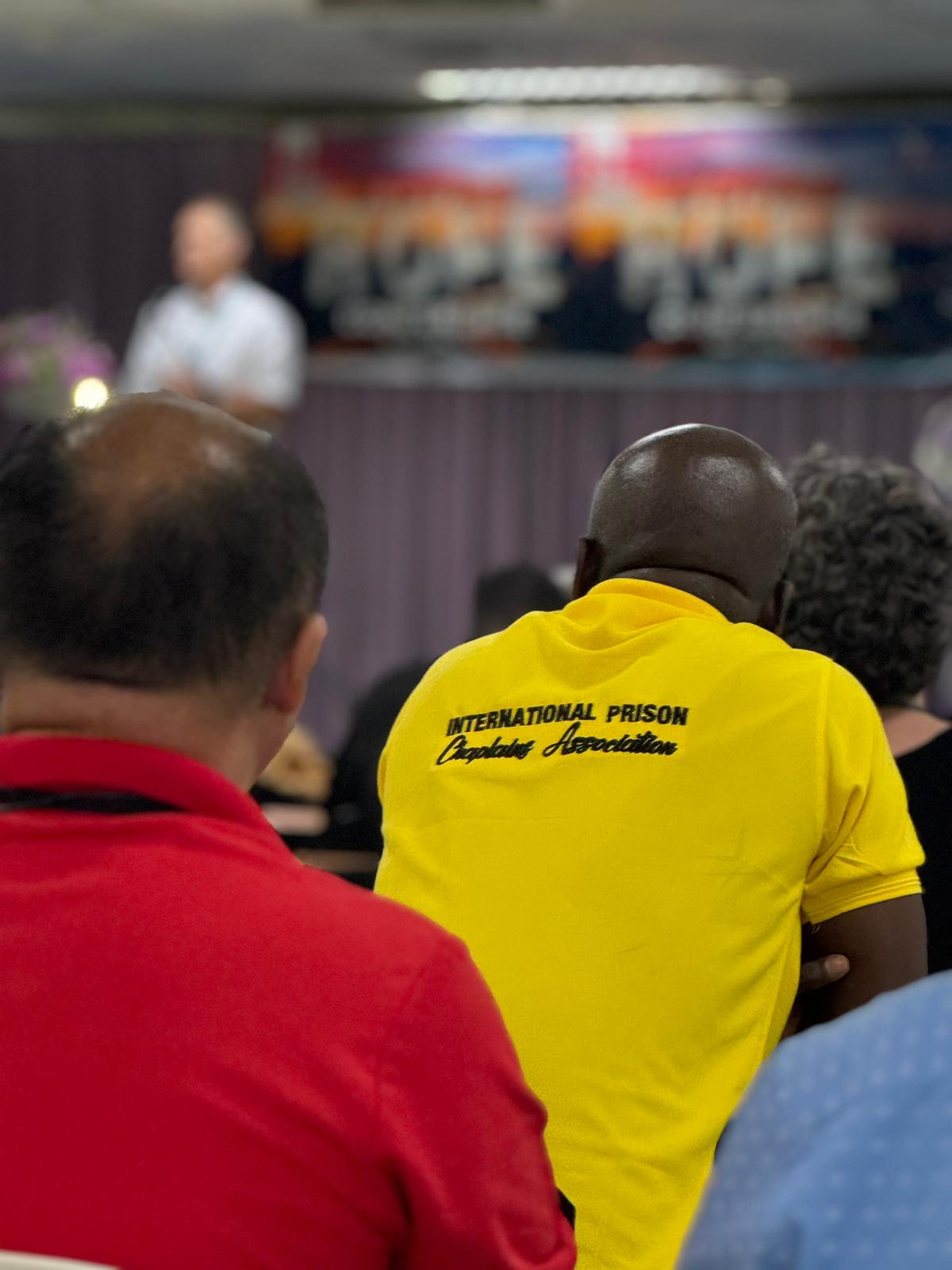You meet people where fear, guilt and hope share one room.
We have had the fortune of working with many of you and know the incredible difference you make for those in prison or jail. We offer extra tools you can use when stress is high and words are heavy. F.A.S.T. is First Aid for Stress and Trauma. Simple body based skills that help a person find enough calm to choose the next step. It is first aid that can be used by anyone. We support chaplains serving people of all faiths and none, in line with your institution mandate.
We presented our tools at the international conference for prison chaplains of IPCA in Bangkok 2025, they were enthusiastically received and they are officially supported by the steering committee. This page gives you an idea of what we hope to supply you with, because when a stressed body settles, prayer and counsel can land. This is the space where F.A.S.T. can serve.
What these techniques offer you
These techniques are simple, and very efficient. You can use them the same day in a cell, a corridor, a chapel, or a visiting room. For self, staff and inmates alike. No equipment. Clear steps. You invite calm without the story. You can use them to close a meeting so the person leaves with a sense of control they can carry with them and use for themselves later, when they are alone and distress comes back. We supply materials and short workshops with plain language suited for faith and mixed settings.

Safety and ethics
Soul searching of any kind in this context will usually wake traumatic memories. In these moments F.A.S.T. offers a simple addition. You steady the body so emotional reactions can move and settle. You invite consent at each step and you close the moment so the person leaves with a sense of control. Showing them the possibility to self regulation supports the restoration you bring them with any other process. Your prison holds the duty of care and safeguarding, F.A.S.T. sits inside those rules and never replaces them. In crises and critical incidents we defer to your prison emergency procedures, our role is to help steady people until those steps are in motion.
Women in prison
Women carry a distinct load inside. Loss of contact with children. Fewer visits. Bodies that show stress in sleep, skin, hair and cycle. Dizziness. Chronic pain that can have emotional roots. Weight shifts. Self harm to feel control. Adding the possibility of regulating stress can make a great difference. For them to bring the tapping back into the cell and be able to do it regularly for themselves can make a real and vital difference in their hope of finding balance.
Help them beyond their body reactions
People are more than the worst act and more than the worst harm done to, or by them. You see gang codes, family pressure, silence around unconfessed acts with guilt and shame, a need for respect. These conflicting emotions can create a body "defenses" closing down a person. A simple thing like hand havening while speaking can help them beyond their body reactions.
Many chaplains tell us that hope grows when a person can breathe, look around and feel their feet on the floor. This is where a safe space for the soul and accountability can meet. Self regulation helps turn off the inner alarm and brings presence to now. Openness to change. A part of the puzzle.
When suicidal thoughts prevail
In custody, thoughts of ending life can come in waves. We can never claim these techniques to be a way of changing such thoughts, but we have many testimonials where inmates have started practicing self regulation daily, and come out on the other side of these waves successfully, by noticing that "something can change". F.A.S.T. supports your referral pathways and sits alongside clinical and security protocols.
How F.A.S.T. fits with chaplaincy
You enter a space. The air is tight. With F.A.S.T. you can begin with the body before words. You can introduce a "simple relaxation exercise for those who wish to try". Use only with consent, and in the least restrictive way that fits your institution practice. Some tapping. Slowing down breath. Eyes finding the room. Where your rules and the person's consent allow, these techniques can be facilitated for another person. In some prisons inmates are allowed to do this for each other. This can open up for prayer and dialogue. Connection. It is not a recipe that will work every time, it is one more practical and shareable tool in your toolbox.
What we believe
Every person has a body that tells truth before the mouth speaks. First aid for the body opens a door for truth and responsibility. People often change in the presence of other people. Change holds when a village is involved. Your presence and your word matter. Your core mandate includes worship, pastoral care and community links. F.A.S.T. is a small support to that wider call. We are here to stand beside you and offer techniques to help all involved find inner calm, so that processes of healing can take place.
If you want to start
Download the app with instruction videos and texts in 38 languages and start using it for yourself as a daily routing. Our book is available in several languages, see if it speaks to you. Join a monthly online workshop or one of our WhatsApp groups to be able to ask questions and get mentoring. We keep language plain and speak English, Swedish, French and Spanish. We know that you are the expert.
Simple [handout pdf]
What is [F.A.S.T. summary]
Reach us here: info@peacefulheart.se
P.S. Read about our biggest tapping in a prison: 7000 inmates at the same time, in Rwanda.